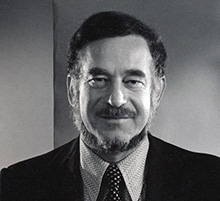Warning!
This post has some horribly saddening photos that are difficult to see. Also, as it is political in nature, it also contains my own personal viewpoints. My goal was not to offend, but to offer my thoughts.If you’ve been watching the news over the past days and weeks, you’ve certainly seen information regarding the thousands of people fleeing Syria (and other nations in the Middle East [such as Afghanistan] and northern Africa [such as Eritrea]). Natives of these countries have been trying to escape due to the vast political and ethical injustices amidst their war-torn homes.
I had read all the numbers regarding the immigrants, and how the sheer amount of people trying to get into the EU (and possibly seek asylum) was crippling transportation systems, and could be damaging to the economy. A quick recap shows that approximately 350,000 people have migrated into the EU since the start of 2015, and that nearly 100,000 of them hailed from Syria (for a full look at the numbers, and an overview of the situation, please see the “Why is EU struggling with migrants and asylum?” article at BBC News). Looking at the numbers and reading about the conflicts and struggles, though, does not really illuminate the tragedy associated with the events. Though I generally don’t like the hype and drama that several media outlets try to foster, I think that in situations like this one, seeing evidence of the pain and suffering can bring the abominable nature to light.
One such story has been about a Syrian toddler named Aylan Kurdi. A photo of him and his older brother, Galip, can be seen below.
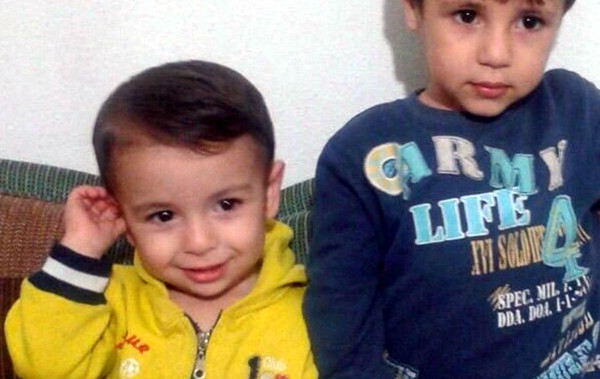
He and his family were trying to flee their hometown of Kobani, Syria and seek asylum in the EU. They, like many others, were trying to get away from the conflict, the war, and the brutality running rampant in their home. Unfortunately for little Aylan, he would never get to see this new life in the EU. Instead, he drowned, and his body was found washed up on the shore near the town of Bodrum, Turkey.
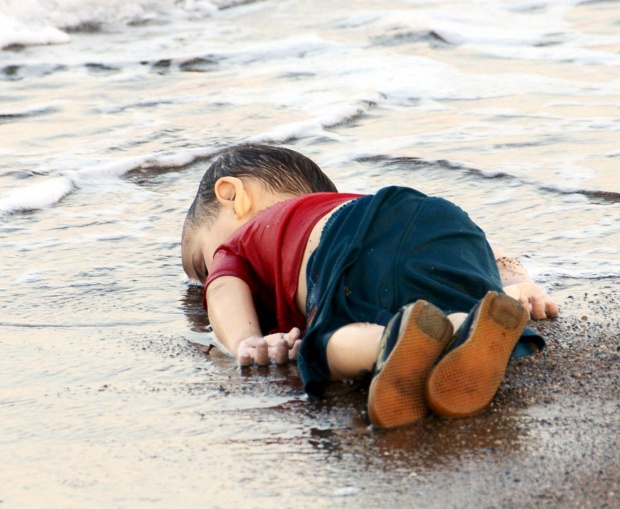
He was trying to survive when the boat that his family was on capsized on its way to the Greek island of Kos. It goes without say that his family (including his father, Abdullah, who survived the sinking) is trying to endure the unimaginable despair that comes with the loss of a child. The pain extends much further, though. For instance, the downcast and devastated look on the face of the Turkish paramilitary officer who found the body speaks volumes.
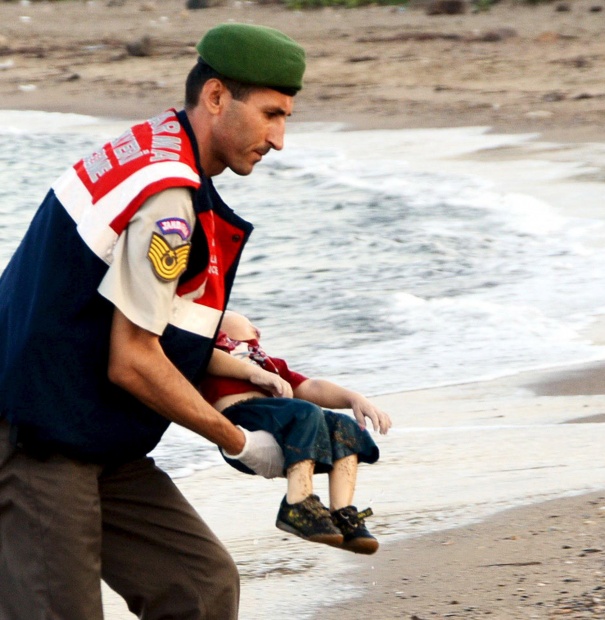
What was the reason for the loss of this little one? To briefly cover it—which unfortunately detracts from the severity of it—the people of Syria started anti-government protests back in 2011. The protests turned violent as supporters of President Bashar al-Assad and those who opposed his rule started fearing for their safety. The full-on civil war became drastically worse in August of 2013 when chemical weapons were fired into suburban and rural areas surrounding the capital city of Damascus. The principal causes of the conflict were political and religious in nature (fighting for democracy against a tyrannical ruler, and going against the Islamic State).
So, due to strongly-held political and religious beliefs, thousands of people have lost their lives whilst myriad others have had their dignity stripped from them. Even with involvement from outside nations, the conflict in Syria has not been adequately resolved, and may not be for many years to come. British Member of Parliament, Nadhim Zahawi posted on his Twitter feed a personal apology to Aylan Kurdi:
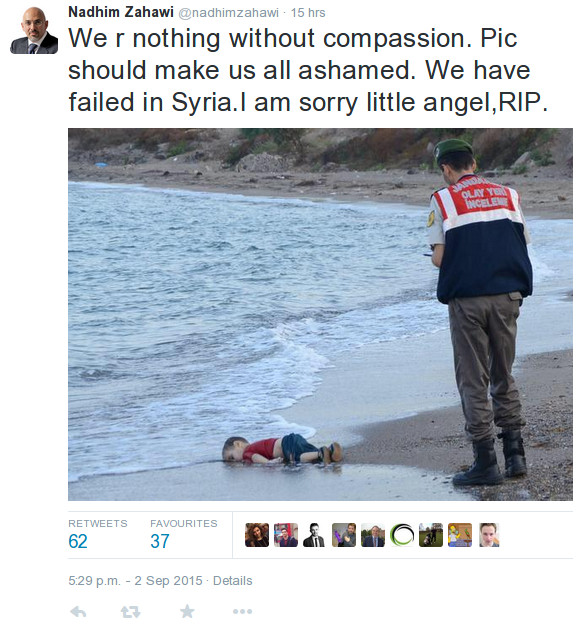
More important than the particular apology were the words that started his tweet, and the acronym with which he closed it. He opens with “We r [sic] nothing without compassion.” When we get so tangled up in our beliefs (political, religious, or otherwise) that we forget to love one another, we have lost sight of our own humanity. He then closes with “RIP,” which, at first glance, doesn’t sound of out the ordinary. However, it struck me because it stands for “rest in peace.” At a mere three years of age, why wasn’t little Aylan allowed to “LIVE in peace?” Matter of fact, why is anyone disallowed the opportunity to “live in peace” instead of “resting in peace” after death?
In my opinion, the particular causes for the rift in Syria are not where we should be focusing our attention. Instead, we need to remember what the true cost is: the loss of human life, livelihood, and personal freedoms. Again in my opinion, we as people should not hold beliefs of any kind so strongly that we forget about the dignity of others. Protesting to uphold our beliefs, struggling to preserve our ways of life, and pushing to uphold personal freedoms are all noble causes, but they should never supplant our fundamental responsibility of treating other people with respect and love. That is my main point. So, I applaud the media outlets for making the Syrian conflict “real” by showing photos that truly represent the devastating effects of war, instead of just spewing numbers that abstract us from the reality of it. However, they still seemed to miss the key point that nothing warrants the loss of human life.
I realise that this post is difficult to read and view, especially because of the horrific images, but the improper treatment of people is a topic about which I feel very strongly. I would like to end the post with something a little more positive regarding the migrants, though, and show an image that indicates it isn’t all terrible. The photo below is of a Bavarian officer who managed to get a young refugee boy to smile as he entered the capital city of Munich.
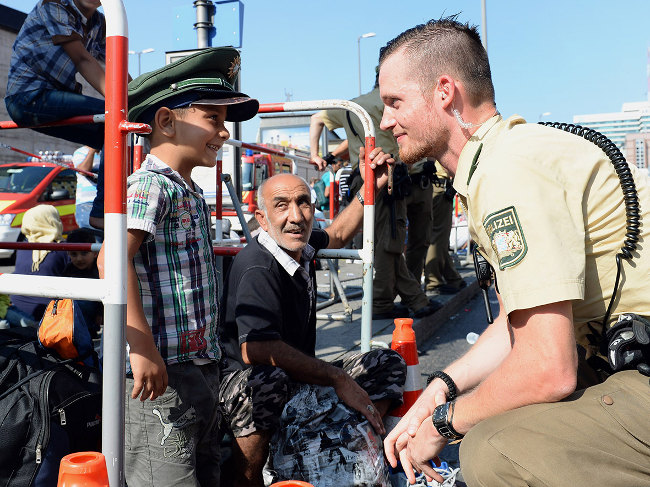
Click to enlarge
Please remember that, no matter how passionately you hold your beliefs, nothing is worth hurting another person. Buddha taught that there is an unalterable law that “Hatred does not cease through hatred at any time. Hatred ceases through love.” Love one another, and only then will these types of inhumanities stop.
–Zach
Hatred does not cease through hatred at any time. Hatred ceases through love. This is an unalterable law. –Buddha

